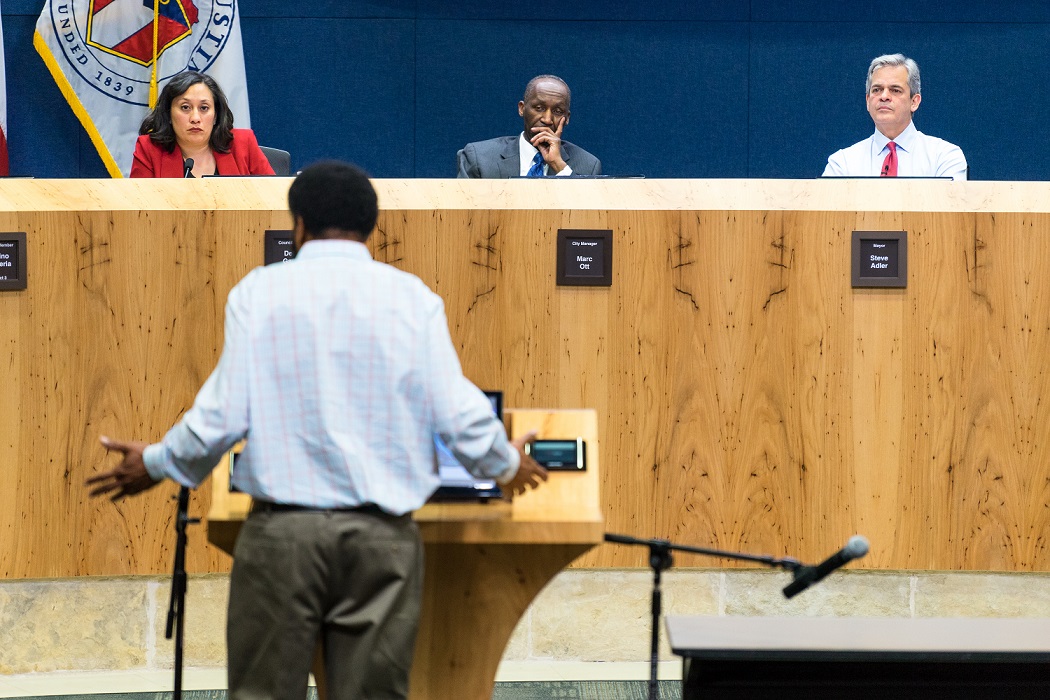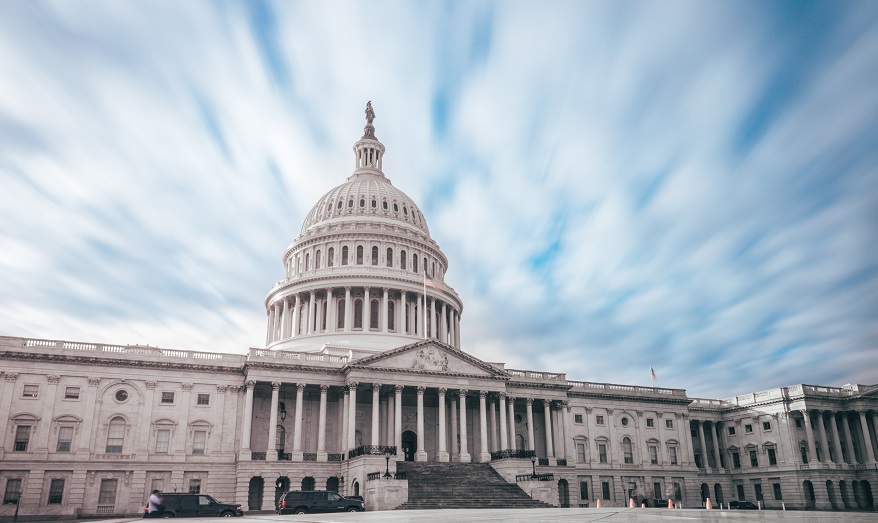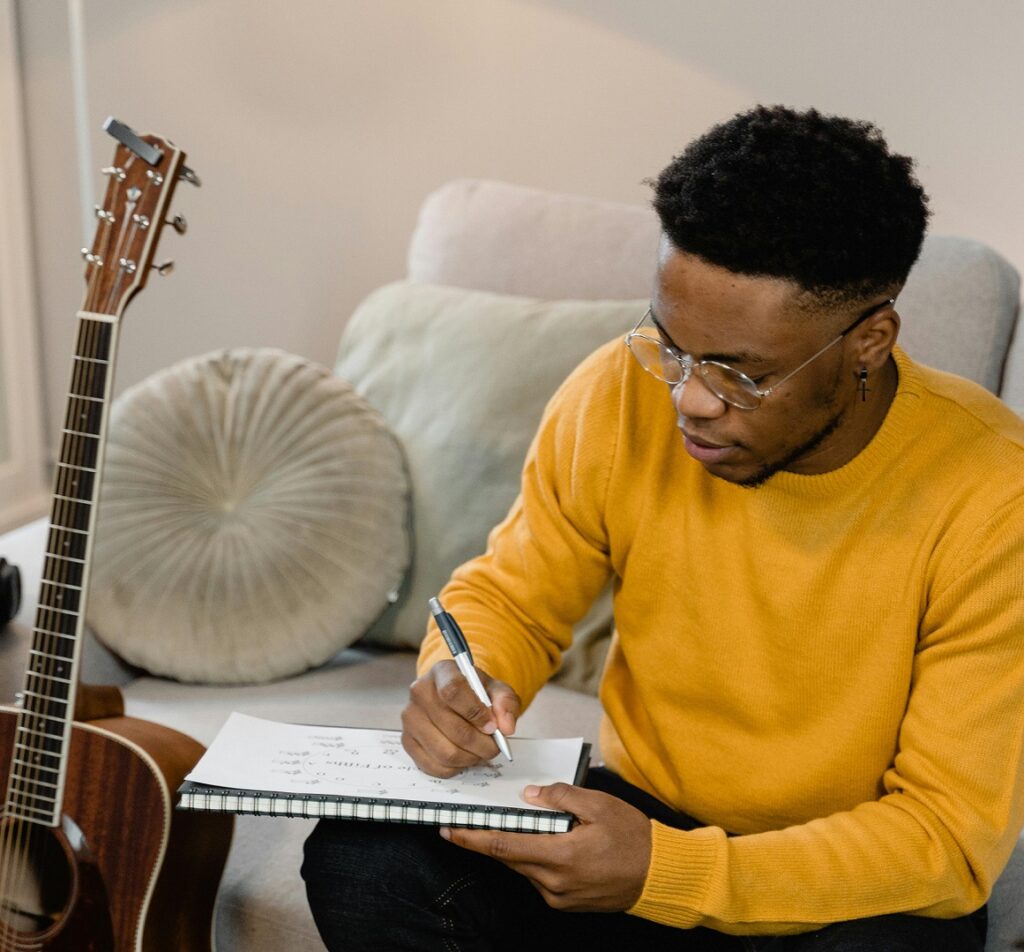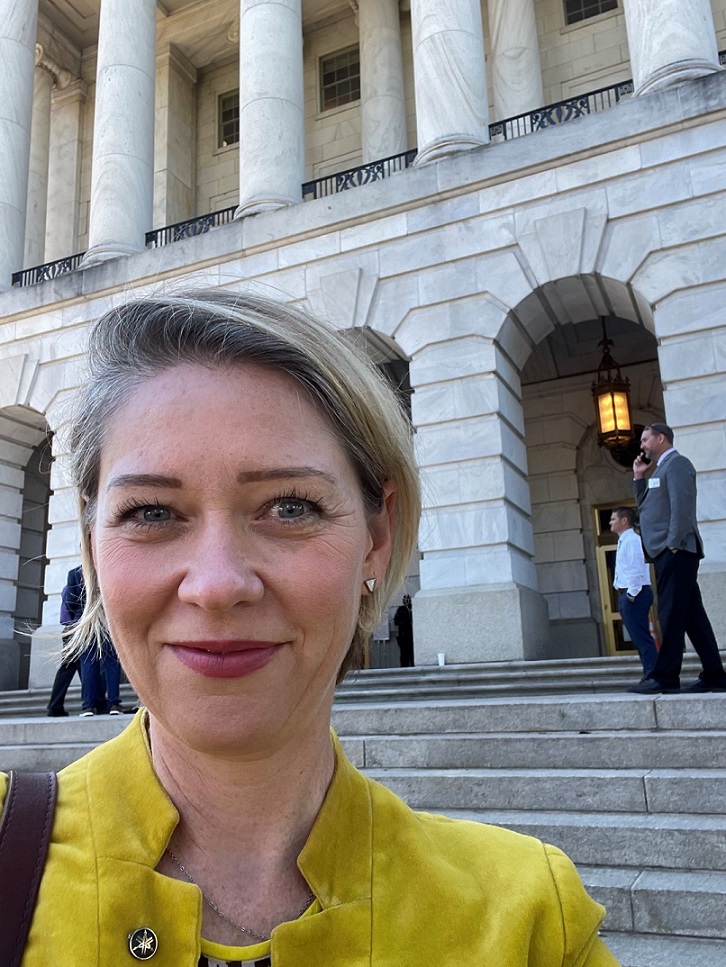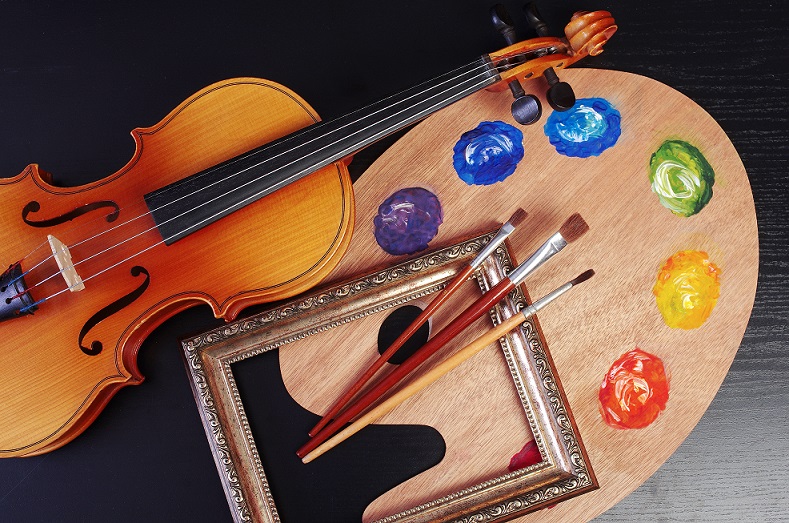Bring Administrators Plans, Not Problems
Keep open lines of communication with administrators and the school board to ensure they are aware of your program’s plans, goals and needs.
Over the past two months, it feels like I have watched more webinars than I have in the last two years. I am sure that is the case for many of you.
There have been many educational and informative webinars that are sharing advocacy resources. These resources are so important for all educators, especially music educators. After watching these webinars, two main points kept coming to the forefront.
- Music educators need to open a line of dialogue with administrators and school board members.
- Do not wait for administrators to bring you their plan for next year. Start your own plans now!
As advocates of music education, we must talk with our administrators. Yes, they are constantly bombarded with problems and questions, but don’t let that deter you. How do you open the door to these conversations? How can you be solution-oriented? If we offer plans and back them up with current information and up-to-date data, the easier it will be for our administrators and school board members to advocate and support our music programs.
During the “CDC Guidelines for Music Educators” webinar presented on May 27 by Amro Music, Barry Trobaugh, the director of bands at Munford High School in Tennessee, emphasized that “the decisions for your future are being made right now.” While you must be understanding about the “horrible” positions your administrators are in, you also need to be in daily contact with your principal.
“If nothing else, talk about the weather. Tell them how much you miss them,” Trobaugh said. There will come a time when you will have a conversation about your program, and you can talk about “your problems, but you also need to have a resolve,” he said.
Where Do I Start?
“One good conversation can shift the direction of change forever.” — Linda Lambert, author and professor emeritus, California State University, East Bay
The first thing to do is to have a conversation with your principal, superintendent or other administrators. Keep the dialogue open and positive. Ask questions and come up with solutions to teach music next school year. As stated earlier, you must bring plans to your administrators.
A good place to start is the Center for Disease Control (CDC) document “Interim Guidance for Administrators of US K-12 Schools and Child Care Programs to Plan, Prepare, and Respond to Coronavirus Disease 2019” and the “College Band Directors National Association (CBDNA) Covid-19 Response Committee Report.” As you read these documents, start brainstorming solutions.
- How can you setup your classroom to teach next school year?
- Can you use technology to teach theory and/or music history?
- How about purchasing recorders and/or pianicas for all of your elementary students so they don’t have to share instruments?
- Can you teach your students about composition or arranging in small groups?
- Is it possible to setup a virtual ensemble?
- Can you or your students conduct guest artist interviews via video conferencing software?
- How about putting together a bucket drumming ensemble?
- Can you teach your students about entrepreneurship? Could they build a musical website? How about some instructional YouTube video?
- See the resource list below for more ideas and examples.
What Do I Do Next?
“Be Proactive. Be Prepared. Be Vigilant.” — Cordelia Istel, Director of Organizing, Arts for LA
The next step is to open up communications and advocate to your school board. Your school board is made up of individuals who represent the public. They do not work for the school district. They represent the needs and interests of the public, and they are tasked with making the school environment better for students. How can you start to create a dialogue with your school board? Your school board members may not specialize in the arts, so they may not be aware that music and arts are part of a “well-rounded education” as outlined in the Every Student Succeeds Act). In the “Arts for LA/California Alliance for Arts Education“ webinar, they outlined the following steps:
- Download the Advocacy Dashboard and Rapid Response Plan. (These documents from Arts for LA will help you determine who is making the decisions, when the decisions are being made and how you can influence these decisions.) Do your research and get members of your community to help advocate for the arts.
- Go to your school board’s website and find out the date for the next meeting. Put this information into the Advocacy Dashboard and Rapid Response Plan documents.
- Download the school board meeting agenda, which is usually available 72 hours prior to the meeting. Are there any agenda items related to the arts or music?
- Create an action plan. Adapt the formula on the Rapid Response Plan, to create your action plan — “Goal → Target → Strategy → Tactics.”
- “In order to [GOAL], we will influence [TARGET], by [STRATEGY] using [TACTICS].”
- Attend the meeting. To speak at the school board meeting, you can either:
- Make comments during the public comments portion of the board meeting.
- Contact the board and ask to be added to the agenda.
According to Summer McBride, the president of the board of education for Culver City, CA, adding an item to the agenda is more effective. “When the public comments on items [that are] not on the agenda, board members are not allowed to respond,” said McBride. Once an item is added to the agenda, there can be a dialogue with the board.
McBride also pointed out that all school boards govern these five areas: facilities, budget, curriculum, personnel and student discipline. Curriculum and budget are the areas where you can influence the board to ensure that the arts are part of the conversation.
Why We Do the Thing We Do
“Arts education supports the social and emotional well-being of students, whether through distance learning or in person.” – From Arts Education is Essential, a unified statement put out by the National Association for Music Education (NAfME) on May 27 and endorsed by national arts organizations and music industry corporations across the United States
Music educators are often asked to justify their music programs. There are many research studies and surveys that support the importance of including music and the arts into a well-rounded education. Arts for LA has a simple way to justify arts education. It is the 5-4-3 method, which is students with an arts education are:
- 5 times more likely to stay in school
- 4 times more likely to be recognized for academic achievement
- 3 times more likely to get a bachelor’s degree (from Public Comments Talking Points)
We must not forget that social and emotional learning (SEL) is critical as we re-engage with our students. SEL will help us restore relationships and create a foundation for academic learning. In the NAfME webinar “Advocating for Music Education Utilizing Social Emotional Learning,” Dr. Scott Edgar stated that our music programs help foster “school connectedness, resiliency, self-awareness, diversity, high standards and cultural necessity.” SEL is more important than ever and will help us advocate for our programs.
Now is the Time to Form the Team!
“Alone we can do so little; together we can do so much.” – Helen Keller
Building a group of like-minded individuals will help you put your plan into action. Why not set up a meeting with the other arts and music teachers in your district or surrounding communities? Come together (virtually or in person while being mindful of social distancing, of course) and start brainstorming for the next year school year. Maybe one of the other teachers has a connection that will help your cause. You won’t know until you start networking and talking.
Use social media to get ideas from music educators across the country. Engage in positive conversations about solutions. We are all in this together, and we need to support our fellow arts educators. Ask questions and see what others are doing. Something that works in New Jersey may work in your district. There are numerous Facebook groups where you can post your ideas and get a lot of great feedback, including:
Expand your network to include community-based arts organizations, city council members who believe in the arts, and your state’s arts-specific organizations. A list of state associations can be found on the NAfME website. Research how these arts organizations are advocating for the arts and how you can partner with them to help support your program. Follow them on social media and keep up to date on what is happening in your state.
Take Action
“Advocacy is not something that you do … it is something that you are.” — Bob Morrison, founder of Quadrant Arts Education Research
Advocating for your program is more important than ever. With inevitable budget cuts and the uncertainty surrounding next year’s guidelines for the classroom, you must remain positive. Your students need you. You see your students more than any other faculty member on campus. You are a constant in their lives. No matter what comes your way, approach it with an “I can make it work!” attitude
I hope this article will ignite you to make connections, start conversations and build an advocacy toolkit to support you, your students and your program.
Resources
- Books
- “Music Education and Social Emotional Learning: The Heart of Teaching Music“ by Scott N. Edgar
- Reopening Resources
- Social Media
- Tools
- Amro Music’s Google Drive Documents: COVID-19 Music Educator Resources
- Amro Music’s Considerations for a Safe Return to the Instrumental Music Classroom (PDF)
- Arts for LA: Local Arts Advocacy Toolkit (also available in Spanish)
- CreateCA’s Declaration of the Rights of All Students to Equity in Arts Learning
- CBDNA Covid-19 Response Committee Report
- An Initial Guide to Leveraging The Power Of Social And Emotional Learning (PDF) from Collaborative for Academic, Social, and Emotional Learning (CASEL)
- Interim Guidance for Administrators of US K-12 Schools and Child Care Programs to Plan, Prepare, and Respond to Coronavirus Disease 2019 (PDF) from the CDC
- NAfME: Arts Education is Essential unified statement
- NAMM Advocacy Summit Resources
- Webinars
- Amro Music “After Hours” webinar series
- Amro Music: “CDC Guidelines for Music Educators” webinar and presentation slides
- “Arts for LA/California Alliance for Arts Education“ webinar
- NAfME: “Advocating for Music Education Utilizing Social Emotional Learning“ webinar
- Websites
Acknowledgments
There have been several great webinars over the past couple of months. I want to acknowledge three that influenced the materials outlined in this article.
- The “Arts for LA/California Alliance for Arts Education” webinar was the catalyst for this blog post. After seeing their Local Arts Advocacy Toolkit, I immediately saw the value of this information for music educators across the United States. A Spanish language version of the toolkit, Recursos Locales de Abagacia, is also available.
- Amro Music (based in Memphis, TN) has produced a series of “After Hours” videos hosted by Nick Averwater, Amro’s band department manager, who interviews music educators and experts from across the United States. Topics include advocating, CDC guidelines for music educators and more. Amro has also created a great Google Doc folder with resources. Be sure to check out its “CDC Guidelines for Music Educators” webinar and presentation slides.
- In the NAfME “Advocating for Music Education Utilizing Social Emotional Learning” webinar, Dr. Scott Edgar and Bob Morrison provide insight into how SEL can be used to advocate for your program. Morrison introduced a new website called SEL ARTS, which offers tools to foster connections between the standards, SEL and advocacy. If you haven’t read Edgar’s book, “Music Education and Social Emotional Learning: The Heart of Teaching Music,” add it to your summer reading list.
Yamaha is an active advocate for music education. We want to empower you as music educators to strengthen your programs in any way we can. Please register for the Yamaha Educator newsletter to read up on advocacy, professional development, instruments, resources, partnerships in education. Join the Yamaha Music Educator Community on Facebook. Email us at educators@yamaha.com.











